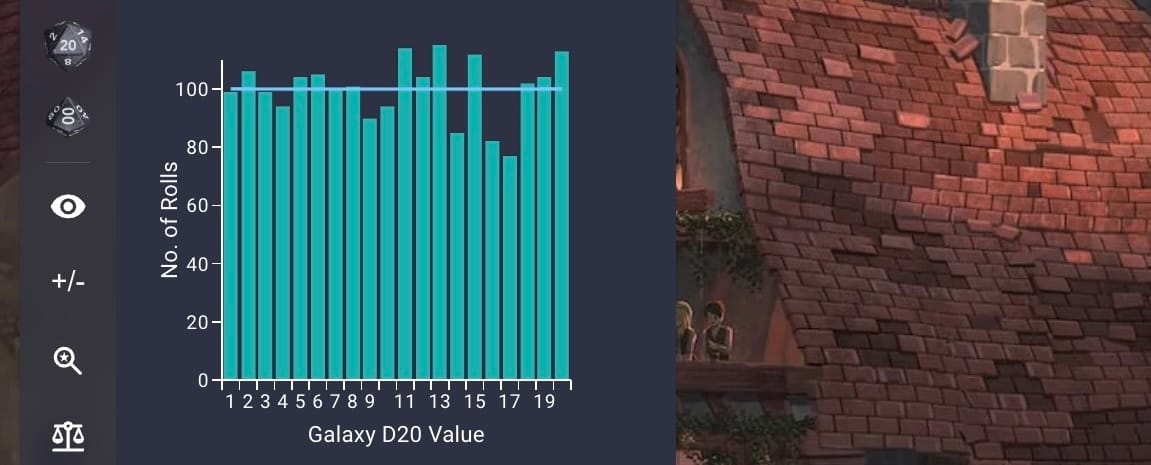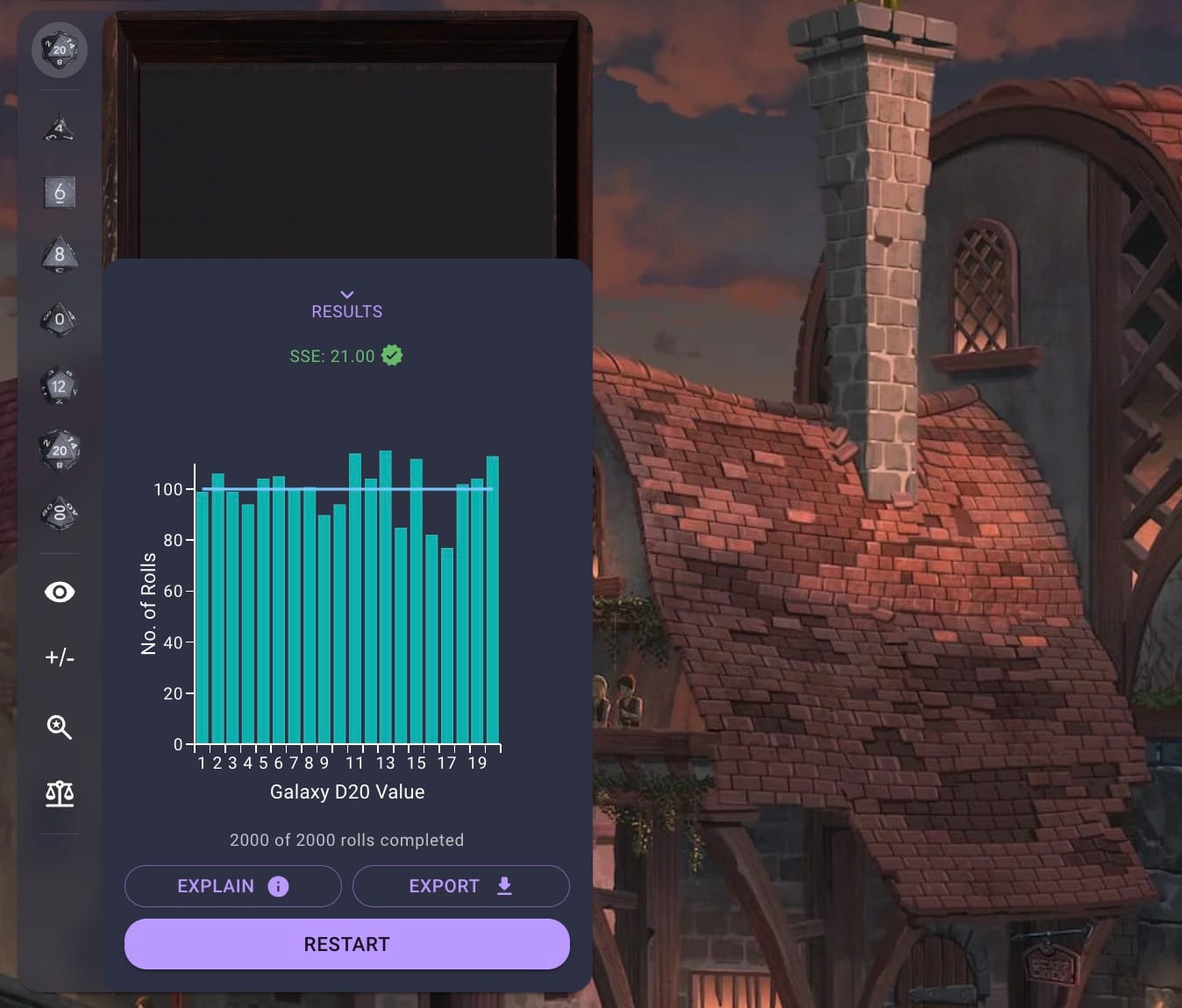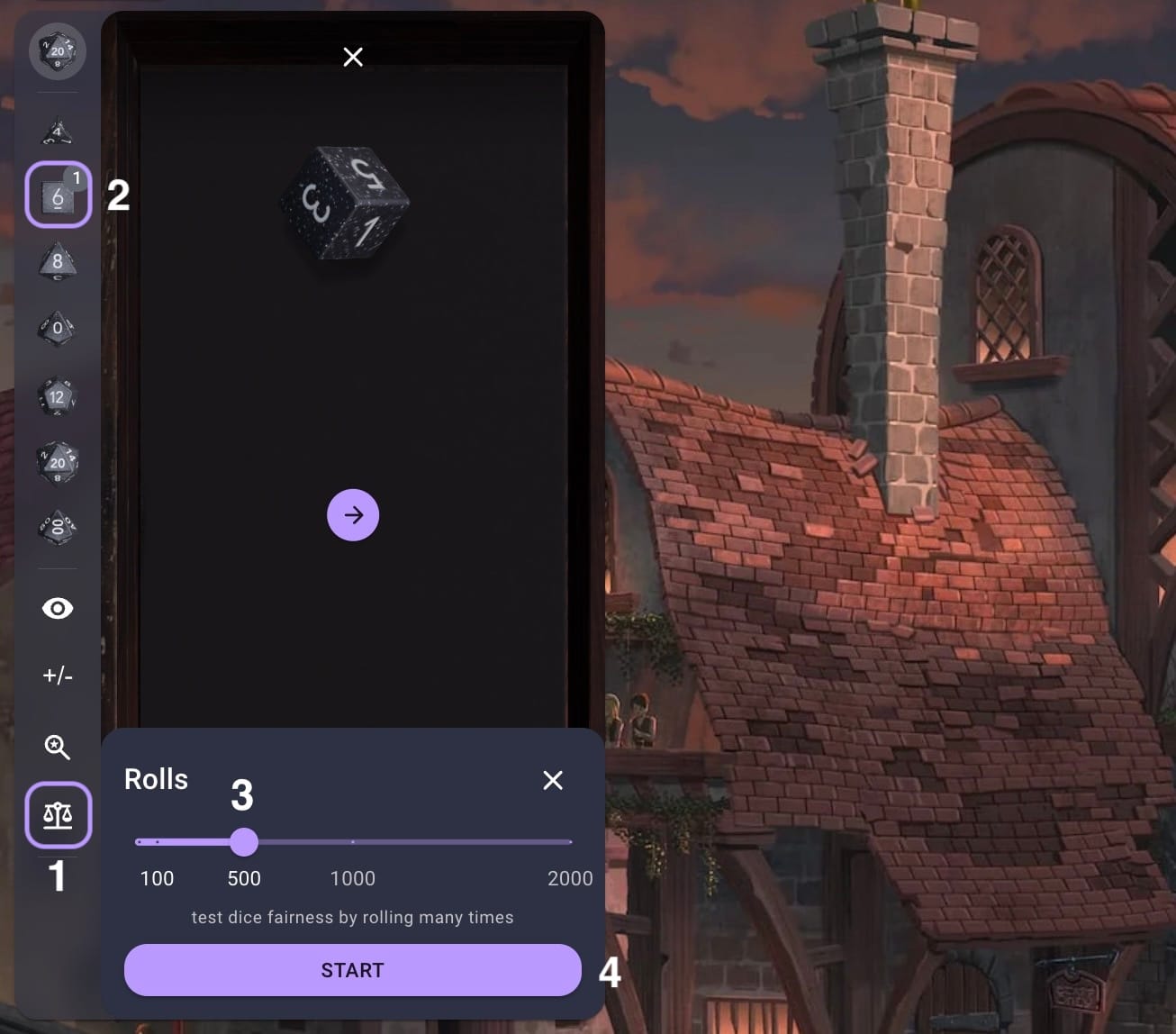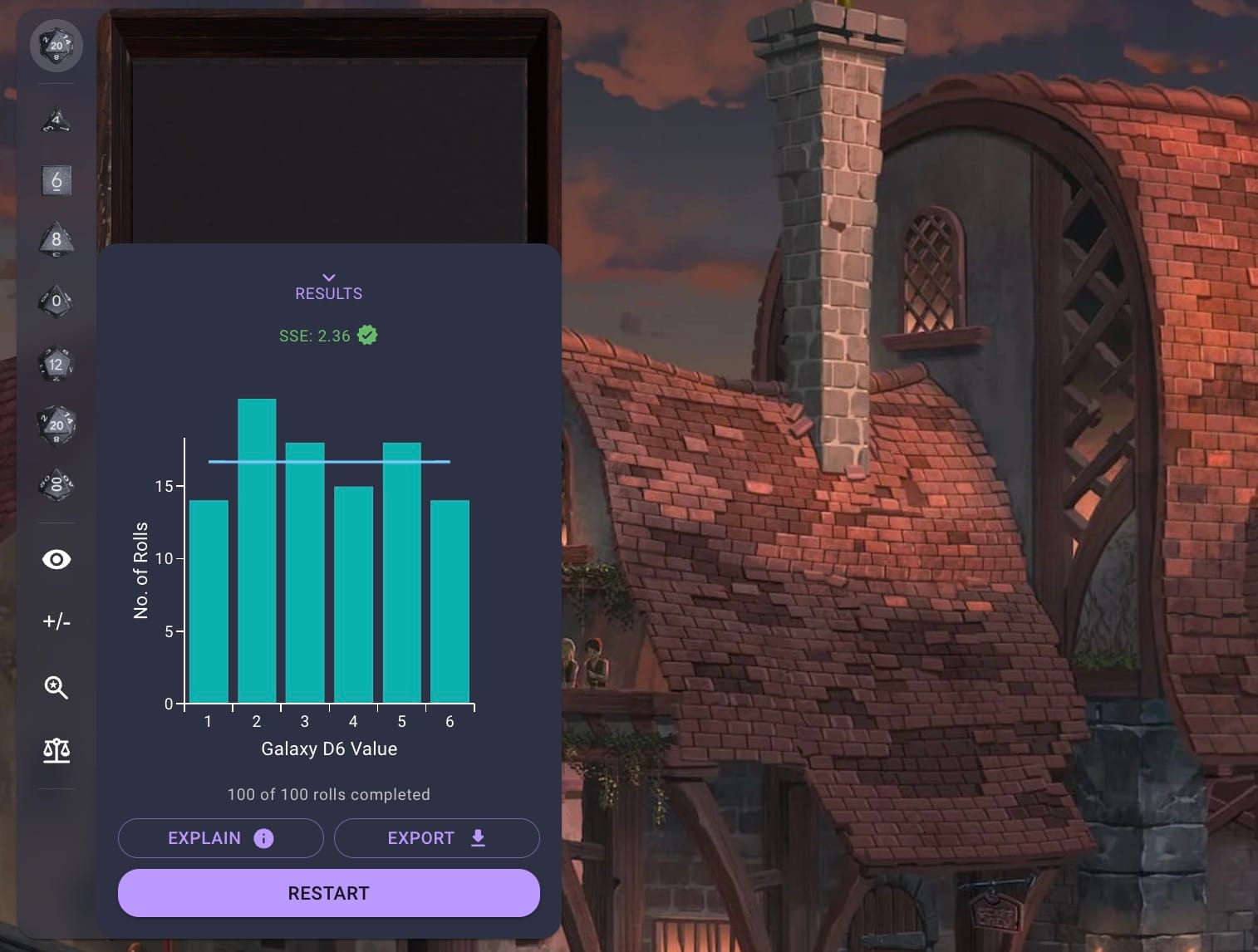Are Owlbear Rodeo's Dice Still Fair?
Since our last blog post on whether Owlbear Rodeo's dice are fair a lot has changed. So you may have the question. Are Owlbear Rodeo's dice still fair?

Since the dawn of civilization (or at least the mid 70s) tabletop RPG fans have thrown their favorite math rocks around to decide the fate of characters, towns and even worlds. With such big stakes comes the two eternal questions "Are my dice fair? I keep rolling ones" and "Are my players' dice fair? They keep rolling twenties".
Many cycles ago we set out on a quest to answer these questions for Owlbear Rodeo. It was a perilous journey but with our weapons of choice (math and statistics) we ventured forth and bested the bewildering beast.
Or so we thought...
Since our last blog post on whether Owlbear Rodeo's dice are fair a lot has changed. Although our underlying methodology for rolling dice remains the same we use a new physics engine, new 3D renderer, and new extension architecture. So you may have the question. Are Owlbear Rodeo's dice still fair?
Because of the various emails we get asking this question (or more asserting our dice must be rigged) we not only set out to answer this question once more but also provide the tools for you to test this yourself.
So are they Fair?
Yep.
How do you know?
Here's our test results for rolling 2,000 D20s. The x-axis represents which number on the dice was rolled. The y-axis represents how many times it was rolled. The blue horizontal line represents what you would expect a fair dice to roll given infinite rolls. The SSE (Sum of Squares Error) represents how far we are from that perfect roll.

Since our SSE value is 21.00 we can perform a Chi-squared test to see whether our dice is fair. For a D20 if our SSE value is above 31.41 then the dice would be weighted and unfair. But since we are under that value we can say Owlbear Rodeo's dice are still fair. For more details on this calculation see either our first blog post or the original blog post we based our calculation from.
But can I trust these results?
What if it's different on my computer? What if you change the app in the future can we still trust these results then?
To alleviate these issues we now ship a Fairness Tester inside the dice extension.
To use the tester you can first click the Fairness button in the dice sidebar, click the dice you want to test, pick a number of rolls you want to make then click Start.

We recommend you choose at least 500 rolls to make sure your tests are accurate. See the material listed above as to why this is important. For the D20 example we chose 2,000 rolls which took around 40 minutes to run.
The fairness tester allows you to see the results in real-time and once the SSE value turns from orange to green you will know you passed the Chi-squared test and your dice is fair.
Here's a full video of rolling a D6 100 times showing this in action. It's a minute long so buckle up for some off-the-charts thrills.
Rolling a D6 100 times
Once your test is done you can also export your results as a text file to generate your own charts or to check our math.

Conclusion
The Fairness Tester is out now so the next time you're having a run of bad luck feel free to open it up to get all those bad rolls out of the way to make room for some better ones.
